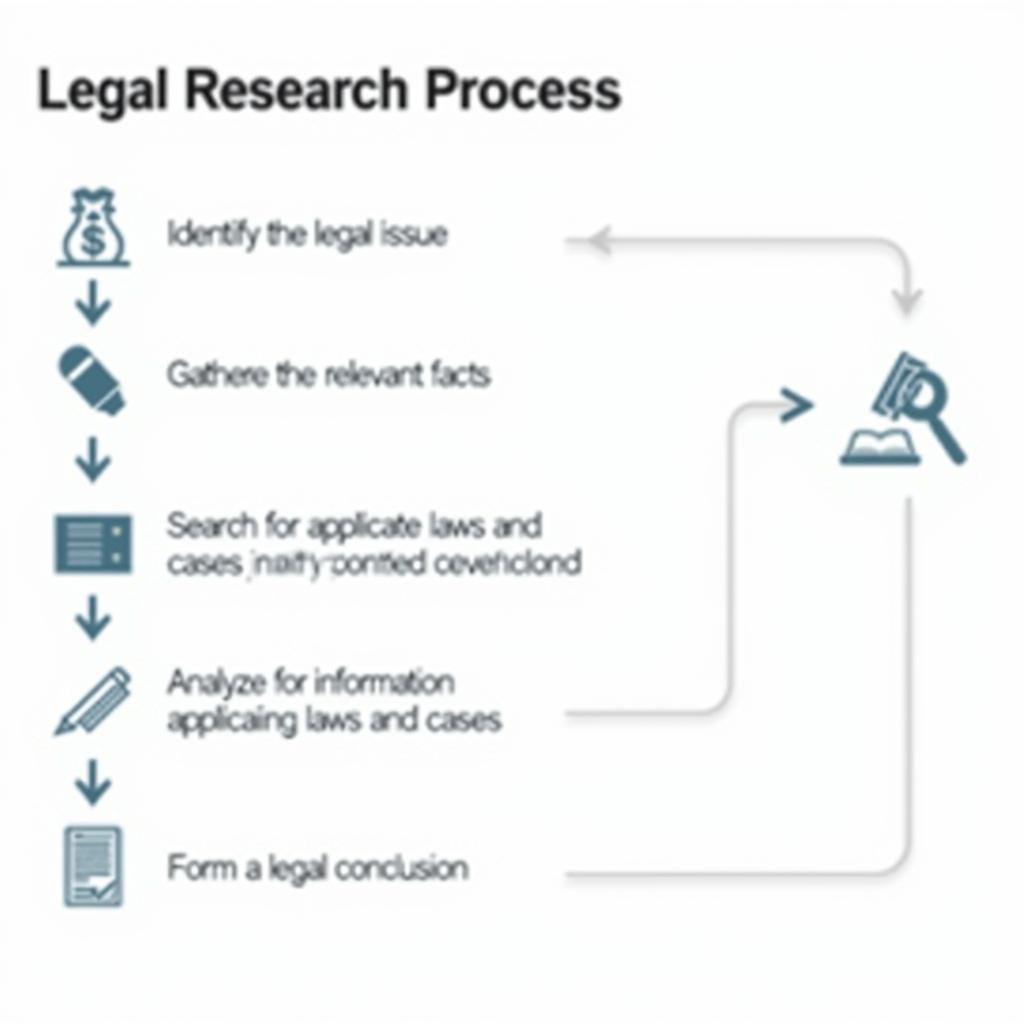Legal research can seem like navigating a labyrinth, especially for those unfamiliar with its intricacies. Whether you’re facing a legal issue, exploring a career in law, or simply curious about a particular law, understanding the basics of legal research is essential. This article will equip you with the fundamental tools and strategies to conduct effective basic legal research.
Understanding Legal Research: What’s the Point?
Legal research is the process of finding and understanding the legal rules and principles relevant to a specific situation. It’s like detective work where you gather evidence (legal sources) to solve a case (your legal question).
Essential Legal Research Tools: Your Detective Kit
Just as a detective relies on various tools, legal research involves utilizing specific resources:
- Legal Encyclopedias: These provide a broad overview of legal topics and can be a good starting point for your research (e.g., Corpus Juris Secundum, American Jurisprudence).
- Legal Dictionaries: Demystify legal jargon by providing definitions and explanations of legal terms (e.g., Black’s Law Dictionary).
- Case Law: Judicial opinions issued by courts, providing interpretations of laws and precedents for future cases.
- Statutes: Laws passed by legislative bodies, forming the foundation of legal rules.
- Regulations: Rules created by government agencies to implement and enforce statutes.
- Online Legal Databases: Platforms like Westlaw, LexisNexis, and Google Scholar offer access to vast repositories of legal sources.
Effective Legal Research Strategies: Cracking the Case
 Legal Research Process Flowchart
Legal Research Process Flowchart
Having the tools is one thing, but knowing how to use them effectively is key:
- Define Your Legal Issue: Clearly articulate the legal question you aim to answer. This step is crucial for focused research.
- Identify Relevant Keywords: Break down your legal issue into key terms and phrases to use in your database searches.
- Start Broad, Then Narrow: Begin with general sources like legal encyclopedias to gain a basic understanding, then delve into more specific resources like case law and statutes.
- Use Boolean Operators: Refine your online searches by using operators like “AND,” “OR,” and “NOT” to combine or exclude keywords.
- Understand Citations: Learn how to decipher legal citations to locate specific cases, statutes, or regulations.
- Read Carefully and Critically: Analyze the information you find, paying attention to the jurisdiction, date, and relevance to your specific situation.
- Stay Updated: Laws and legal precedents change, so it’s important to ensure your research is current.
Conclusion
Mastering Basic Legal Research Tools And Strategies empowers you to navigate the complexities of the legal world. While this guide provides a starting point, remember that legal research is an ongoing learning process.
For more in-depth information and advanced techniques, explore our article on advanced legal research.